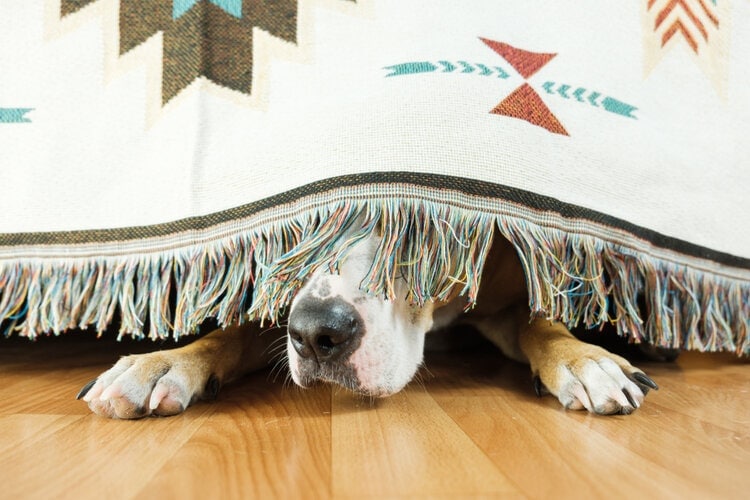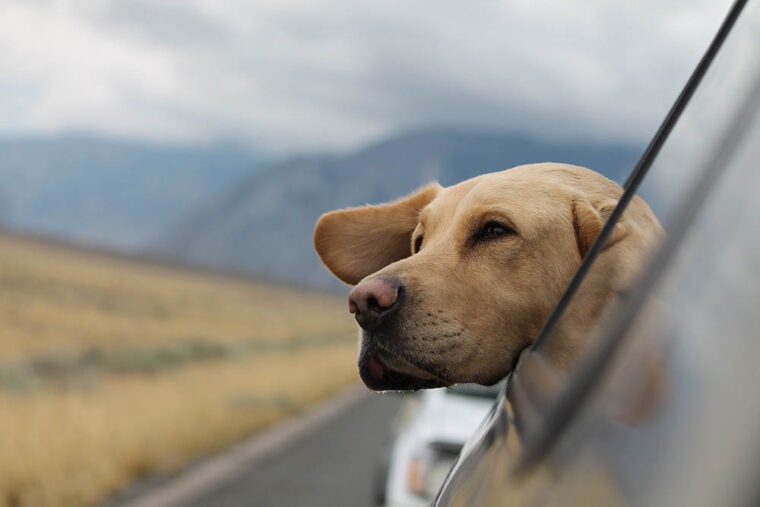
Do you love pets and love to travel? If so, you’re probably wondering whether your two loves can safely co-exist. Luckily, many pets travel well, but depending on the size and type, your transportation options may be limited to car travel. Here are six pets that travel well, along with some tips for traveling with pets.
The 6 Pets That Travel Well
1. Dogs

| Travel type: | Air travel, road trips, train travel |
| Recommended safety equipment: | Carrier, seat belt harness, booster seat |
Dogs are probably the most common and easiest pets to travel with, especially on road trips. Many airlines allow small dogs to fly in the cabin with you. Large dogs can often fly as checked baggage, but it is riskier, and many owners prefer to avoid it.
Small dogs are allowed to ride in the cabin on Amtrak trains, with some limitations. Use caution when traveling (especially by plane) with flat-faced breeds like the French Bulldog or Pug, who can quickly become overheated and suffer breathing issues. Every dog is an individual, and not all may enjoy traveling. Consider alternative arrangements if you love to travel, but your dog doesn’t seem to agree.
2. Cats
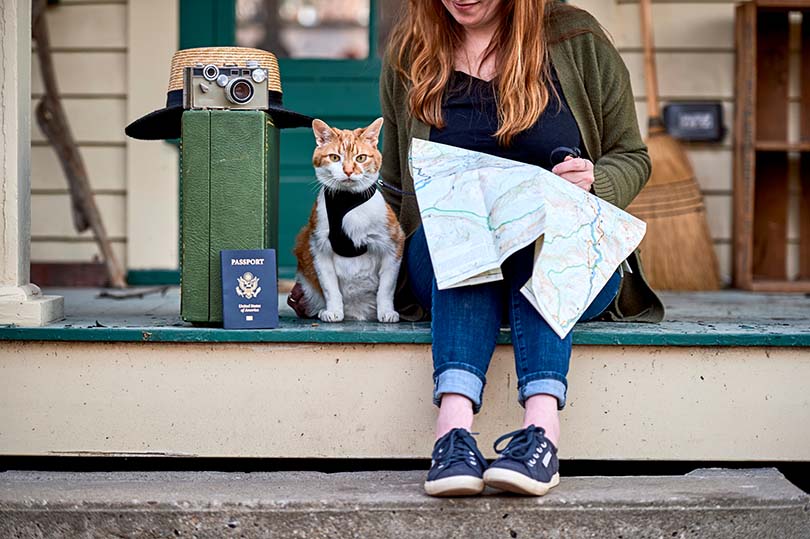
| Travel type: | Air travel, road trips, train travel |
| Recommended safety equipment: | Carrier, seat belt harness, booster seat |
As cats grow in popularity as pets, so does the interest in traveling with our kitties. While many cats are petrified to leave their houses’ friendly confines, others relish the change to accompany their owners on new adventures. Cats are often allowed in plane cabins and on some trains with limitations.
Travel with a cat can be a little more complicated because of the need to provide a litter box. Even more so than dogs, the cat’s personality determines whether it will travel well. Like dogs, be careful when traveling with flat-faced cat breeds like Persians.
3. Birds
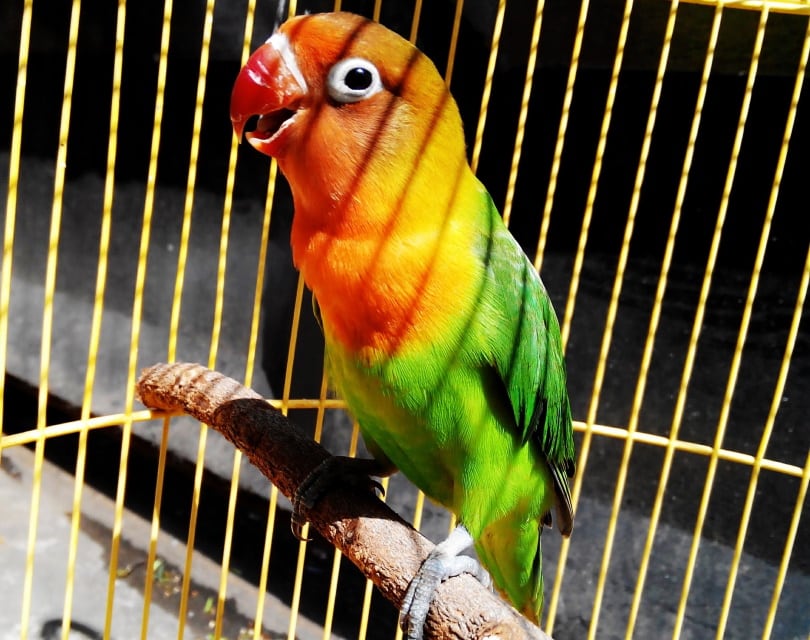
| Travel type: | Air travel, road trips |
| Recommended safety equipment: | Carrier, travel cage |
Large pet birds can make surprisingly good travel companions. Some airlines may even allow them to fly in the cabin. Calm, friendly, well-socialized birds will travel best. Take extra care to secure your bird when traveling by car. If they are in a carrier or travel cage, ensure it is also secured, so it won’t roll around the car and potentially injure your bird.
Small birds tend to be more nervous overall and less likely to take to travel. If you already know you want to travel with your bird when you bring them home, start early to get them accustomed to the process.
4. Rats
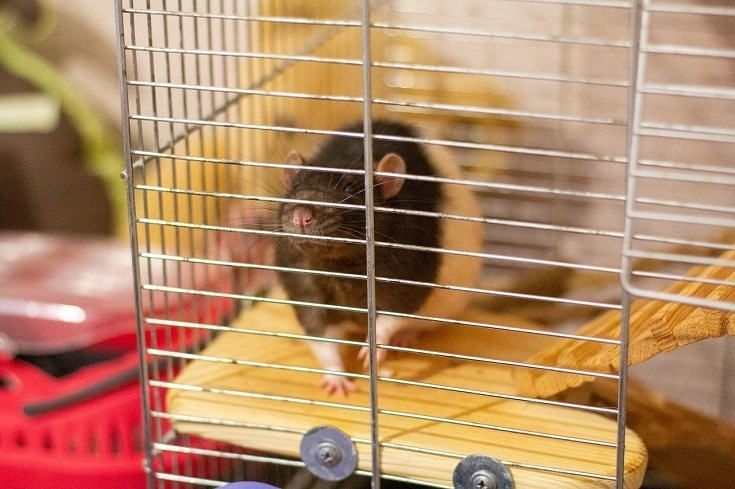
| Travel type: | Road trips |
| Recommended safety equipment: | Carrier, travel cage |
Despite their common association with sewers, rats make excellent pets when well-socialized and can also learn to travel well. Well-socialized pet rats are usually calm, friendly, and enjoy the company of their people.
All these attributes can also help them travel well. However, you’ll most likely be limited to road trips if traveling with a rat. Make sure your pet is secured in an appropriate-sized carrier. Some rats enjoy riding on their owners’ shoulders, but that is not recommended for safe traveling.
5. Ferrets
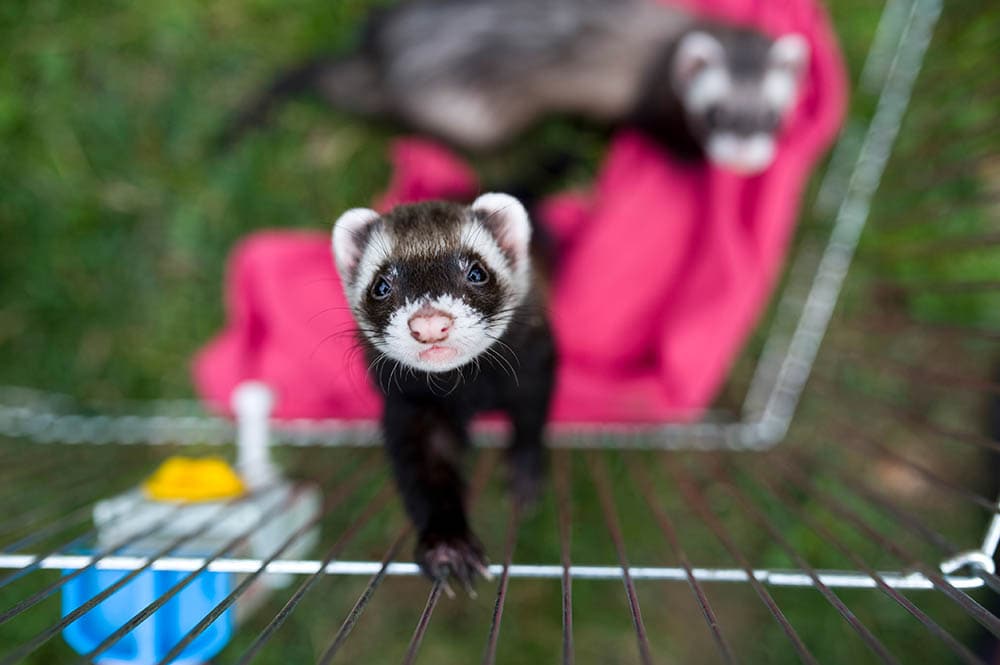
| Travel type: | Road trips |
| Recommended safety equipment: | Carrier |
Ferrets are entertaining and enthusiastic pets that can also travel well under the right conditions. Again, you will be limited primarily to car travel. Before setting out on a road trip with your ferret, double-check local rules and regulations to ensure they’re allowed. Ferrets are curious and clever, so be sure they are secured in an escape-proof carrier while in the car. Keep the carrier secured as well, and never travel with your ferret in the front seat if you have airbags.
6. Rabbits
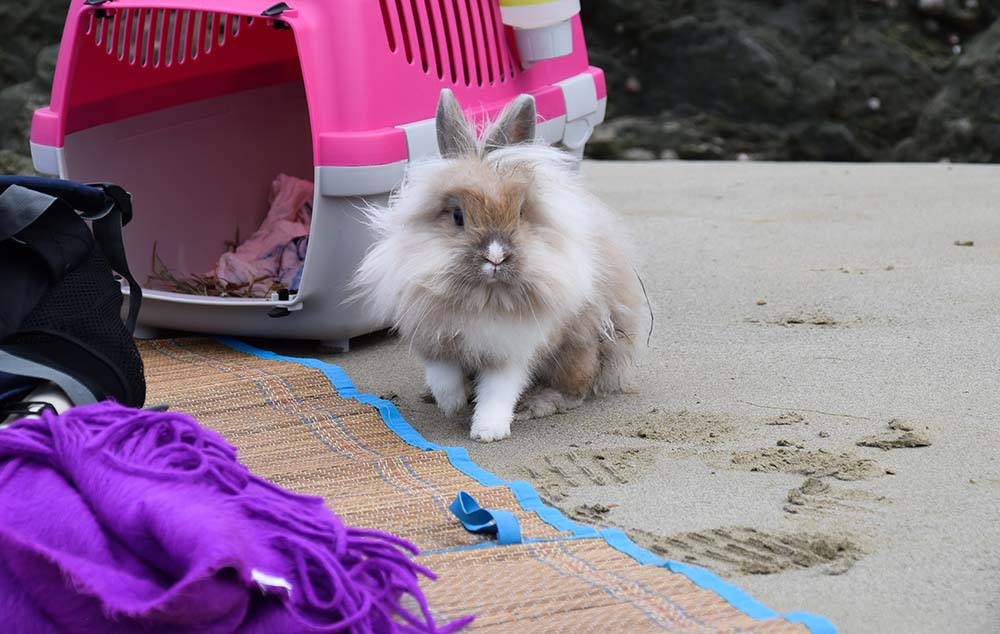
| Travel type: | Road trips |
| Recommended safety equipment: | Carrier |
Because rabbits can stress easily, you’ll need to put a little more preparation into traveling with them, but it can be accomplished. Some airlines allow rabbits to travel in the cabin, but you’ll generally be road-tripping with your bunny. Rabbits that are more mellow will likely travel better than nervous, high-strung ones. Keep your bunny safely contained in a carrier while traveling. Give your rabbit the chance to get used to the carrier before your trip.
Tips for Traveling with Pets
First, plan carefully, especially when traveling by car. How can you safely take breaks to let your pet use the bathroom, eat, drink, etc.? What will you do with your pet while you have food and bathroom breaks? Where will you stay along the way, and do they allow pets?
Check the rules and regulations for traveling with your pet by air or train. You may need to bring health certifications or medical documents. When traveling by car, make sure there are no rules you need to be aware of in the new location, especially when traveling with an exotic pet.
Ensure your pet is healthy and up to date on all shots before traveling. Pack any medications they’ll need.
Bring your pet’s food, toys, cage, bed, and other items to help them feel safe and secure while traveling. Give all pets, especially exotic ones, the chance to get used to the carrier and car over short distances before hitting the road for a more extended trip.
Conclusion
With so many new and exciting places to see around the world, even frequent travelers can always find somewhere new to explore. Traveling pet owners can’t just pick up and leave like pet-free people, but that doesn’t mean they have to stay home. Many pets can learn to travel well and even enjoy the adventure.
Just remember that some animals dislike traveling. Do everything you can to keep your pet calm and safe, but it’s time to make different arrangements if they are still miserable.
Featured Image Credit: Emerson Peters, Unsplash





